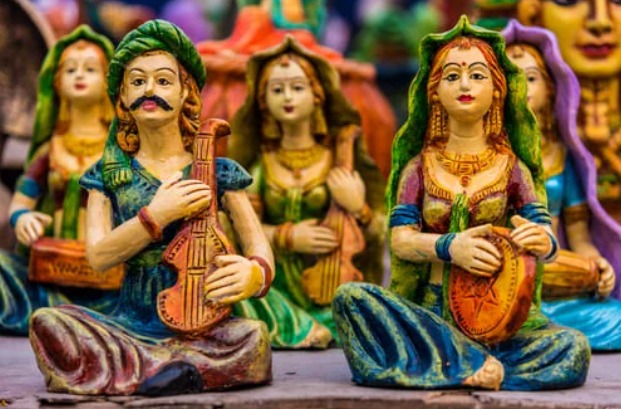
Kala Srishti, how they are preserving Indian traditions
In India, where art and craft are integral to cultural identity, Kala Srishti has emerged as a unique platform for millions of artisans. This innovative initiative is not just maintaining traditions; it is giving them new life in the digital world.
India’s handicraft sector is a powerhouse of creativity and employment. The Ministry of Textiles reports that nearly 4,000 traditional handicrafts and handloom clusters employ over 7 million artisans across the country, primarily in rural and remote areas. Unofficial estimates suggest this number could be as high as 200 million, making it one of the largest employment generators after agriculture.
The economic impact is equally impressive. In 2021, the sector earned approximately INR 35,000 crore in foreign exchange. According to IMARC Group’s forecasts, the Indian handicrafts market, valued at US$ 4,277.5 million in 2023, is projected to reach US$ 7,817.8 million by 2032, growing at a compound annual growth rate (CAGR) of 6.9% from 2023 to 2032.
Kala Srishti, which translates to “creation of art,” is at the forefront of this growth. As India’s largest immersive artisan hub, it offers a unique virtual platform where people can directly purchase products from artisans. This initiative by VOSMOS is redefining how traditional crafts reach global markets.
Piyush Gupta, CEO of VOSMOS, explains the vision behind Kala Srishti, “We’re not just creating a marketplace; we’re building a bridge between centuries-old traditions and modern technology. Our platform allows artisans to showcase their craft to a global audience while maintaining the integrity of their art.”
The platform’s features are designed to empower artisans. It offers a 3D photorealistic environment, allowing customers to experience products in a virtual setting that closely mimics reality. Virsa, their smart virtual assistant, guides customers through the platform, enhancing the shopping experience.
Meenakshi M., Director of Communications & Storytelling at VOSMOS, highlights the impact on artisans, “Kala Srishti is more than a sales platform. It is a way for artisans to tell their stories, share their heritage, and connect with customers around the world. We are seeing artisans not just preserving their craft but innovating and adapting to new markets.”
The platform’s 24/7 product promotion and global reach have opened new avenues for artisans. Many have seen increased sales and have been able to build their brands across geographies. The marketing analytics provided by Kala Srishti give artisans insights into customer preferences, helping them refine their offerings.
One of the key aspects of Kala Srishti is its focus on cultural preservation. By providing a platform for traditional crafts, it ensures that these art forms continue to thrive in the digital age. The platform showcases the diversity of Indian handicrafts, from intricate Banarasi weaves to delicate Madhubani paintings.
The impact on women artisans is particularly noteworthy. The handicraft sector is a major employer of women in India, with approximately 38 lakh women artisans working in the industry. Kala Srishti provides these women with a platform to showcase their skills and earn a sustainable income.
Kala Srishti’s approach goes beyond mere digitization. It creates an immersive experience that brings the essence of traditional Indian crafts to life in the virtual world. Customers can explore virtual art stores, interact with products, and connect with artisans, bridging the gap between the physical and digital realms.
As the handicraft sector continues to grow, platforms like Kala Srishti play a crucial role in ensuring that growth is inclusive and sustainable. By combining traditional craftsmanship with modern technology, they are not just preserving Indian traditions; they are giving them new life and relevance in the 21st century.
As Kala Srishti continues to strengthen its reach and impact, it reinforces the power of technology in preserving and promoting cultural heritage. It’s more than just a marketplace—it’s a movement to keep Indian craftsmanship alive in the digital age.
